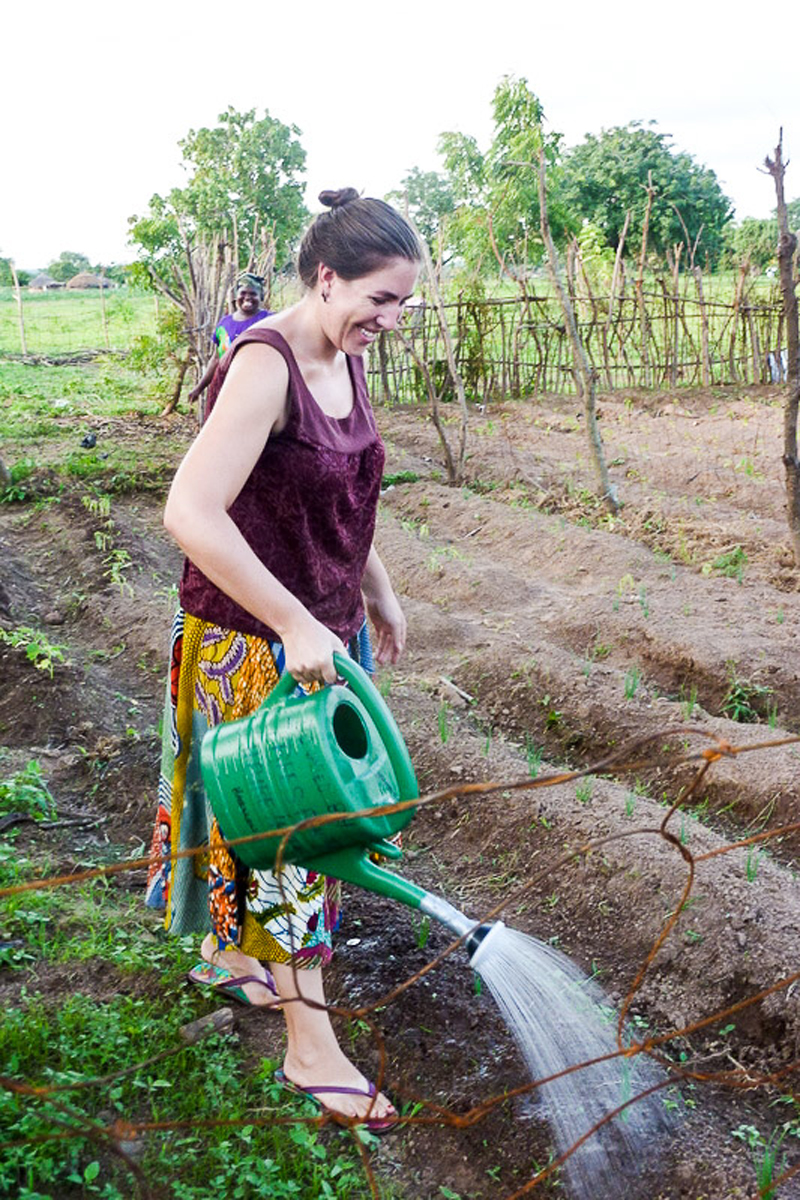Stephanie Mack Harmon, or Sam as she prefers to be called, has lived in a lot of places. Originally from Fairbanks, AK, Sam has set down roots in Nevada, California, Buffalo, Ghana, South Africa and, currently, Seattle.
“I’ve moved around a lot,” she tells us.
We caught up with Sam during her second year in the MEDEX physician assistant training program at the University of Washington. She’s immersed in her 4-month family practice preceptorship in the rural community of Smokey Point, WA. Under the guidance of Dr. Linda Vorvick and other providers at the UW Medicine Neighborhood Smokey Point Clinic, Sam is seeing a wide variety of patients and medical conditions. This morning, it’s a pediatric exam with a young mother and her 10-month-old child. Diaper rash and the proper protocol for bottle-feeding at bedtime are a focus of patient consult.
Some of this is still new to Sam Harmon, so she’s learning. Her history prior to MEDEX was focused on women’s health and emergency medicine. “I’m liking primary care,” she says. Come February, Sam has six 1-month specialty rotations to fulfill in her clinical year at MEDEX. There’s an infectious disease rotation at Harborview scheduled for March and, later, an emergency medicine rotation in Fairbanks, her old hometown.
At this point in the process of PA education, it’s normal for the students to view these rotations as a survey of the possible directions their career might take upon graduation. “I’m excited to experience all the different specialties and see if there’s something that really truly sings to me,” she says.
The earliest influence on Sam’s career path was her mother, a nurse practitioner. “I just enjoyed being with her, seeing her and talking medical with her,” she says. In Southern California, she volunteered with the local AIDS Support Network. “I’ve always really liked talking with people about their health and their choices in their own health,” she tells us. “Kind of helping them with more than just the physical illness—more like their life.”
It was on-the-job training. For the AIDS Support Network, she talked with the patients about their CD4 count. In people with HIV, this is the most important laboratory indicator of how well the immune system is working and the strongest predictor of HIV progression.
More than that, she offered nutritional counseling and helped the patients get back on their feet with social services support.
Sam has a large worldview, and created her own study abroad program while obtaining her biochemistry degree at California Polytechnic (Cal Poly) State University.
“I always loved the thought of Africa and the people of Africa,” she says. “So I decided I was going to get on a plane and enroll in a South African university in Cape Town. I did that for an entire year, and I was the first student at my university to do this.”
During that year in Cape Town, Sam worked with HIV patients while attending school.
After obtaining her bachelors degree, Sam worked as a medical assistant for Planned Parenthood in Santa Barbara, CA. She did all of the patient interviews, the review of systems and patient histories. “I worked with a doctor and was the colposcopy specialist,” she tells us. “We did all colposcopies together and abortion managements—anything. I learned how to draw blood, how to give injections, and I counseled on birth control.”
During this time, Sam and her husband got married. Together, they volunteered with the Peace Corps and were assigned to Sam’s beloved Africa, specifically the west coastal nation of Ghana. Her husband, JB, became a science teacher there, and Sam taught chemistry for a year. Together they lived on a secondary school campus.
Sam’s role in Ghana had a strong medical and public health component. Her official title was Health Water and Sanitation Facilitator, an assignment that lasted two years. “I worked with UNICEF doing community-led open sanitation. It was to reduce open defecation in 34 communities around our village.”

As if that wasn’t enough, Sam was also in charge of maternal and fetal health, doing baby weighings once a week with all the new mothers. “I was the president for our Gender and Youth Development Committee in Ghana,” she says. “I travelled around to other communities, working with volunteers who were doing gender and youth programs, camps, or other workshops, helping them facilitate.”
Speaking of her two years in Ghana, Sam doesn’t hesitate. “I love it,” she says. “Any opportunity I have to go back, I totally will, because it was just wonderful.”
Upon returning to the States, Sam and her husband moved to the Seattle area. During this time Sam worked as a medical assistant, once again, with Planned Parenthood. “It’s kind of my go-to: women’s health,” she adds.
Sam also worked a weekly 24-hour shift as a volunteer EMT with the Vashon Fire Department. “It was very exciting. I enjoyed it.”
All this experience led Sam Harmon to the conclusion that she wanted to be a medical provider. “I had worked with a lot of NPs and PAs, and I really enjoyed what they do. Medical school would have meant four years, and I didn’t want to incur all that debt.”
We asked why she didn’t take the nurse practitioner path, like her mother.
“The NP path is more linear, and I’m not a linear person,” she says. MEDEX and the physician assistant profession allowed Sam to take all of her previous experiences and channel them into being a provider. The nurse practitioner path would have required getting another bachelors degree in nursing before going on to become an NP.
“Also, I’m not sure if I can settle on one specialty for the rest of my life. I like change. And I like that ability with PAs. I would find that constraining in an NP position. I talked in-depth with my mom about it. And she also recommended the PA profession for me, personality-wise.”
After the Peace Corps, Sam and her husband moved to the Seattle area in part to be within range of the University of Washington. She was drawn to the MEDEX mission of working with the underserved. “That’s always been a passion of mine,” she says. “Obviously, I focused on that when working in Ghana or South Africa. But when working for Planned Parenthood, a lot of our patients were underserved. Most didn’t have health insurance. They were self-pay or Medicaid. They had difficulty with access to providers, especially women’s health. I think there’s a lot of underserved within cities and rural areas, with wide needs for more primary care providers and preventative healthcare.”
Sam applied to MEDEX. “It was my first choice,” she says. She applied to other PA schools as a backup, but her application was very much tailored to the MEDEX approach to the profession.
With seven years as a medical assistant, two years as an EMT and two years working in Ghana, Sam was well over the 2,000 hours of patient contact required by MEDEX. Still, she wasn’t prepared for the flat out rejection from the other PA programs. “It was a rejection letter, flat out,” she says. “I didn’t get an interview or wait list or anything. The rejection letter arrived a day before my interview with MEDEX, and I thought, ‘Oh, man, this is going to be rough.’”
Two days after her MEDEX admissions interview, Sam got a call that she was accepted into the program.
Graduation comes in August of 2017. Given that Sam holds a wide view of the world, we wonder what her future holds. Primary care was her original goal. “But I eventually want to do either teaching or training in Africa to help build the provider base,” she says. “That would be ideal. And the Peace Corps is now doing that again. They take NPs, PAs and doctors that offer provider training, in order to train the new set of PAs in Ghana. I’d like that.”
Sam adds that she came to PA school with an open mind, not knowing specifically where she wanted to go.
“My husband is very supportive,” she adds. He’s a mechanical engineer. He’s open to adventure, and he’ll go wherever we go.”

